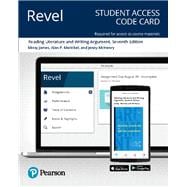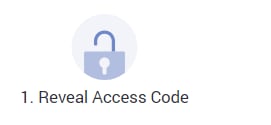For courses in Introduction to Literature, LIterature for Composition, or Argument.
Connects with ideas in written text to enrich students’ reading and writing
Together, literature and argument are inspiring and empowering; literature liberates thinking, and argument disciplines it. Revel Reading Literature and Writing Argument proposes that writing is valued when it makes readers think. Organized into two parts as Rhetoric and Anthology, it provides multi-genre reading experiences that immerse students in critical and creative thinking as they address problems and issues from multiple perspectives.
The authors encourage students to see language as a way to create meaning in their lives, and to see themselves as writers with a purpose and audience. By engaging with literature and applying the principles of argument, students practice the skills of analysis and evaluation and develop critical standards for judging ideas. The 7th Edition is extensively revised, with abundant new reading selections, new activities, student writing samples, and more.
Revel™ is Pearson’s newest way of delivering our respected content. Fully digital and highly engaging, Revel replaces the textbook and gives students everything they need for the course. Informed by extensive research on how people read, think, and learn, Revel is an interactive learning environment that enables students to read, practice, and study in one continuous experience – for less than the cost of a traditional textbook.
NOTE: Revel is a fully digital delivery of Pearson content. This ISBN is for the standalone Revel access card. In addition to this access card, you will need a course invite link, provided by your instructor, to register for and use Revel.











